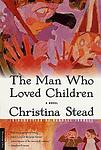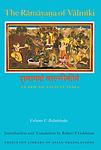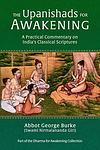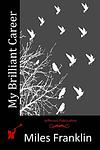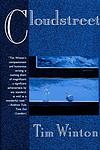The Greatest Indian, Australian Books of All Time
Click to learn how this list is calculated.
This list represents a comprehensive and trusted collection of the greatest books. Developed through a specialized algorithm, it brings together 300 'best of' book lists to form a definitive guide to the world's most acclaimed books. For those interested in how these books are chosen, additional details can be found on the rankings page.
Genres
Countries
Date Range
Reading Statistics
Click the button below to see how many of these books you've read!
Download
If you're interested in downloading this list as a CSV file for use in a spreadsheet application, you can easily do so by clicking the button below. Please note that to ensure a manageable file size and faster download, the CSV will include details for only the first 500 books.
Download-
1. Midnight's Children by Salman Rushdie
The novel tells the story of Saleem Sinai, who was born at the exact moment when India gained its independence. As a result, he shares a mystical connection with other children born at the same time, all of whom possess unique, magical abilities. As Saleem grows up, his life mirrors the political and cultural changes happening in his country, from the partition of India and Pakistan, to the Bangladesh War of Independence. The story is a blend of historical fiction and magical realism, exploring themes of identity, fate, and the power of storytelling.
-
2. The God of Small Things by Arundhati Roy
This novel is a poignant tale of fraternal twins, a boy and a girl, who navigate through their childhood in Kerala, India, amidst a backdrop of political unrest and societal norms. The story, set in 1969, explores the complexities of their family's history and the tragic events that shape their lives. Their mother's transgression of caste and societal norms by having an affair with an untouchable leads to disastrous consequences, revealing the oppressive nature of the caste system and the destructive power of forbidden love. The novel also delves into themes of postcolonial identity, gender roles, and the lingering effects of trauma.
-
3. Mahabharata by Vyasa
The book is an English translation of the ancient Indian epic, originally written in Sanskrit, which tells the story of a great war that took place between two groups of cousins, the Kauravas and the Pandavas. The narrative explores themes of duty, righteousness, and honor while also featuring a rich array of gods, goddesses, and supernatural beings. It is not only a tale of war and conflict, but also a profound philosophical and spiritual treatise, containing the Bhagavad Gita, a sacred text of Hindu philosophy.
-
4. A Suitable Boy by Vikram Seth
Set in 1950s India, this epic novel follows the story of four families over a period of 18 months, focusing primarily on the young woman Lata and her mother's quest to find her a suitable husband. The narrative explores the political, social, and personal upheavals in a newly independent India, struggling with its own identity amidst the backdrop of a society grappling with religious tensions, land reforms, and the shaping of a modern democratic state. Lata's journey is an exploration of love, ambition, and the weight of familial duty.
-
5. A Fine Balance by Rohinton Mistry
"A Fine Balance" is a poignant narrative set in India during the 1970s, a time of political turmoil and upheaval. The plot revolves around four diverse characters - a widow, a young student, and two tailors - who are brought together by fate. Through their interconnected lives, the book explores themes of caste, poverty, political corruption, and the human spirit's resilience. It offers a profound exploration of the delicate balance that sustains life amidst adversity.
-
6. The Man Who Loved Children by Christina Stead
This novel explores the complex dynamics of the Pollit family, focusing on the relationship between the egotistical patriarch Sam and his idealistic daughter Louie. Set in Washington D.C. during the 1930s, the story provides a stark portrayal of a dysfunctional family, where Sam's delusional optimism and insensitivity clash with Louie's growing disillusionment and rebellion. The narrative delves into themes of family conflict, emotional abuse, and the struggle for individual identity within the confines of family expectations.
-
7. The Thorn Birds by Colleen McCullough
"The Thorn Birds" is a sweeping family saga that spans three generations of the Cleary family, set against the backdrop of the Australian outback. It focuses on the forbidden love between the beautiful Meggie Cleary and the family's priest, Father Ralph de Bricassart. The novel explores themes of love, religion, and ambition, as Meggie and Ralph struggle with their feelings for each other and the choices they must make.
-
8. Voss by Patrick White
Set in 19th-century Australia, the novel follows a German explorer, Voss, as he leads a doomed expedition into the outback. Parallel to this, Voss develops a romantic relationship with Laura Trevelyan, a young woman he meets before his departure. Despite their physical separation, their spiritual and emotional connection deepens as Voss's journey becomes increasingly perilous. The narrative explores themes of obsession, the human condition, and the dichotomy between civilization and wilderness.
-
9. Schindler's List by Thomas Keneally
The book tells the true story of a German businessman who saves more than a thousand Polish Jews during the Holocaust by employing them in his factories. The protagonist's transformation from a greedy high living war profiteer to a savior of lives forms the crux of the narrative. It offers a chilling yet inspiring account of the horrors of the Holocaust, human resilience, and the power of one individual to make a significant difference.
-
10. Ramayana by Valmiki
The book is an ancient Indian epic poem which follows the journey of Prince Rama as he embarks on a quest to rescue his beloved wife Sita from the clutches of Ravana, the demon king. The narrative explores themes of morality, dharma (duty/righteousness), and the struggle between good and evil. The story is not just about Rama's battle against Ravana, but also his spiritual journey and the importance of upholding one's duties and responsibilities.
-
11. Nectar in a Sieve by Kamala Markandaya
"Nectar in a Sieve" is a tale of an Indian peasant woman named Rukmani who endures the hardships of rural poverty, natural disasters, and personal tragedy, while trying to raise her children and maintain her marriage. The book explores themes of love, hope, and the strength of the human spirit against the backdrop of a rapidly changing India. Despite the constant struggles, Rukmani never loses her faith and hope, symbolizing the resilience and strength of ordinary people in the face of adversity.
-
12. Oscar and Lucinda by Peter Carey
"Oscar and Lucinda" is a novel that tells the story of two unconventional individuals, Oscar and Lucinda, who meet on a ship going to Australia in the mid-19th century. Oscar, a young English clergyman, and Lucinda, a teenage Australian heiress, bond over their shared love of gambling. Their mutual obsession leads to a high-stakes wager that will have lasting consequences for both of them. The novel explores themes of love, faith, and obsession against the backdrop of Victorian-era England and Australia.
-
13. The Female Eunuch by Germaine Greer
This book is a seminal feminist text that explores the oppression of women in society. It critiques the traditional roles and expectations of women in the mid-20th century, arguing that societal norms and conventions force women into a secondary, submissive role, effectively castrating them. The book encourages women to reject these norms and to embrace their own sexual liberation, arguing for the need for a revolution in the way women perceive themselves and their place in society.
-
14. Upanishads by Hindu scripture
The book is a comprehensive compilation of ancient Hindu scriptures known as the Upanishads, which are fundamental to understanding the core philosophies of Hinduism. The text delves into profound spiritual teachings and philosophical dialogues about the nature of reality, the self, and the universe, providing invaluable insights into concepts such as karma, reincarnation, moksha, and the ultimate truth of existence. It serves as a guide to spiritual enlightenment and self-realization, offering timeless wisdom for introspection and personal growth.
-
15. True History of the Kelly Gang by Peter Carey
This historical novel is a fictionalized account of the life of Australian outlaw Ned Kelly, told in the form of a journal written to his daughter. The narrative explores Kelly's life from childhood, his family's struggles with poverty and the law, his involvement in horse thievery, and his eventual formation of the Kelly Gang. The story culminates with the gang's infamous standoff with the police at Glenrowan, providing a humanizing perspective on a figure often portrayed as a ruthless criminal.
-
16. Home and the World by Rabindranath Tagore
This novel is a political and philosophical exploration set in early 20th century India during the country's struggle for independence. It revolves around three main characters: a nobleman, his wife, and his friend, a fervent nationalist. The story unfolds as the wife, initially confined to the inner quarters of their home, begins to question her societal boundaries and the idea of nationalism after meeting her husband's friend. The narrative delves into the complexities of love, freedom, and the concept of home and world, set against the backdrop of the Swadeshi movement, a part of the Indian independence movement against British rule.
-
17. Heat and Dust by Ruth Prawer Jhabvala
"Heat and Dust" is a novel set in two different time periods in India, exploring themes of colonialism, gender roles, and cultural clash. The story alternates between the 1920s, following the scandalous life of Olivia, an English colonial wife who falls in love with an Indian prince, and the 1970s, where her step-granddaughter journeys to India to uncover the truth about Olivia's life and her own identity. The narrative exposes the complexities of love, culture, and identity in the context of British colonial rule and post-colonial India.
-
18. Untouchable by Mulk Raj Anand
"Untouchable" is a novel that explores a day in the life of a young Indian man, Bakha, who belongs to the lowest caste, the Untouchables. The narrative follows Bakha's experiences of extreme discrimination and humiliation as he performs his job as a latrine cleaner. Despite the harsh realities of his life, Bakha dreams of a better future and is fascinated by the modern world and British rule. The novel provides a poignant critique of the caste system and the social inequalities in India.
-
19. The Transit of Venus by Shirley Hazzard
The novel follows the lives of two orphaned Australian sisters, Caroline and Grace Bell, who move to England in the post-World War II era. The story revolves around their relationships, particularly Caroline's complex and often tragic love life. The narrative is filled with themes of love, fate, time, and the intricate complexities of human relationships, all set against the backdrop of significant historical events.
-
20. Clear Light of Day by Anita Desai
"Clear Light of Day" is a novel set in Old Delhi, which explores the dynamics of the Das family. The story shifts back and forth in time, reflecting on the lives of siblings Bim, Raja, Baba, and Tara, and their relationships with each other and their aunts. The narrative delves into themes of memory, time, and decay, as well as the political upheaval of the Partition of India. The novel is a poignant study of family relationships, personal change, and loss.
-
21. The Recognition of Sakuntala by Kālidāsa
"The Recognition of Sakuntala" is an ancient Indian play that tells the story of a beautiful woman named Sakuntala who lives in a hermitage and falls in love with King Dushyant. After a series of misunderstandings and a curse that causes the king to forget Sakuntala, the two are eventually reunited when a fisherman finds the royal signet ring that Dushyant gave Sakuntala, leading to her recognition. The play is a classic example of the Indian dramatic tradition, with its mix of romance, comedy, and elements of the supernatural.
-
22. My Brilliant Career by Miles Franklin
The book follows the story of a headstrong and ambitious young woman named Sybylla, who dreams of escaping her rural life and becoming a writer. Set in late 19th century Australia, Sybylla faces societal expectations and struggles with her own desires for independence and self-expression. As she navigates through love, family, and societal pressures, Sybylla's journey becomes a reflection of the challenges faced by women in a patriarchal society, ultimately questioning the sacrifices one must make to pursue their dreams.
-
23. All about H. Hatterr by G. V. Desani
This novel is a unique blend of Eastern philosophy and Western literary technique, following the adventures of its protagonist, a British-educated Indian everyman, as he navigates the complexities of life. The narrative is filled with humor, satire, and linguistic playfulness, as the protagonist interacts with various eccentric characters and experiences numerous absurd situations. The book is a critique of both British colonialism and traditional Indian society, offering a distinctive and insightful perspective on the human condition.
-
24. Cloudstreet by Tim Winton
"Cloudstreet" is a sweeping family saga set in post-World War II Australia, following two families, the Pickles and the Lambs, who come to live together in a large, ramshackle house on Cloud Street over two decades. The story explores their struggles, triumphs, and the ways they are haunted and blessed by a mysterious spiritual presence. The novel is a celebration of endurance, unity, and the many forms of love, set against the backdrop of a changing Australia.
-
25. The Fortunes Of Richard Mahony by Henry Handel Richardson
"The Fortunes of Richard Mahony" is a trilogy that chronicles the life of an Irish-born man who emigrates to Australia during the gold rush of the 1850s. The narrative follows his journey, detailing his struggles with mental health, the challenges of marriage, and the difficulties of raising a family in a foreign land. The story provides a deep insight into the complexities of human nature, the societal norms of the time, and the challenges faced by immigrants.
Reading Statistics
Click the button below to see how many of these books you've read!
Download
If you're interested in downloading this list as a CSV file for use in a spreadsheet application, you can easily do so by clicking the button below. Please note that to ensure a manageable file size and faster download, the CSV will include details for only the first 500 books.
Download




